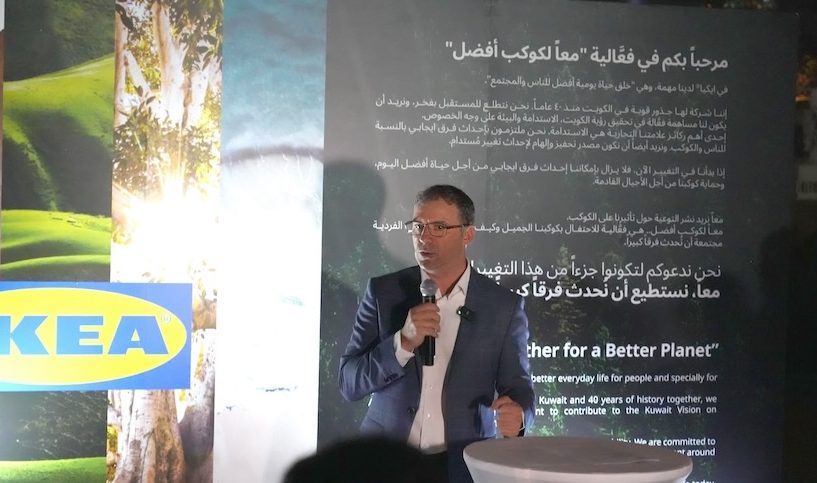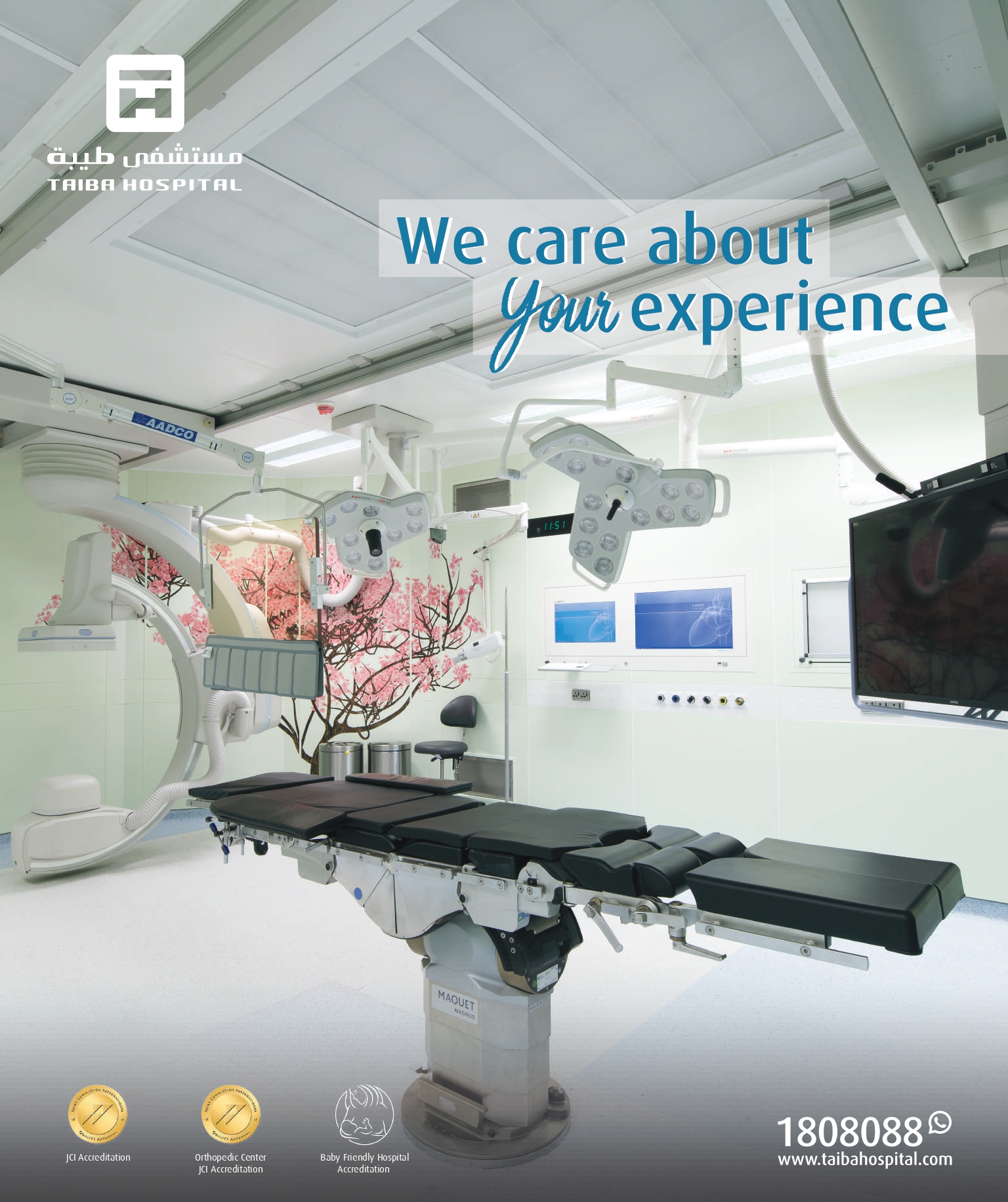IKEA Kuwait continues to set the standard in sustainability, steadfastly upholding its core pillars to effect positive change. With a commitment in Kuwait spanning four decades, IKEA Kuwait consistently pioneers innovative approaches to environmental responsibility, setting a precedent for local industry and beyond. From eco-friendly product design to working towards having the region’s first LEED-certified energy-efficient store in Kuwait and sustainability pledges in Kuwait, IKEA’s most recent “Together for a Better Planet” event held at Shaheed Park, Phase 2, effectively demonstrated how sustainability permeates its entire ethos.
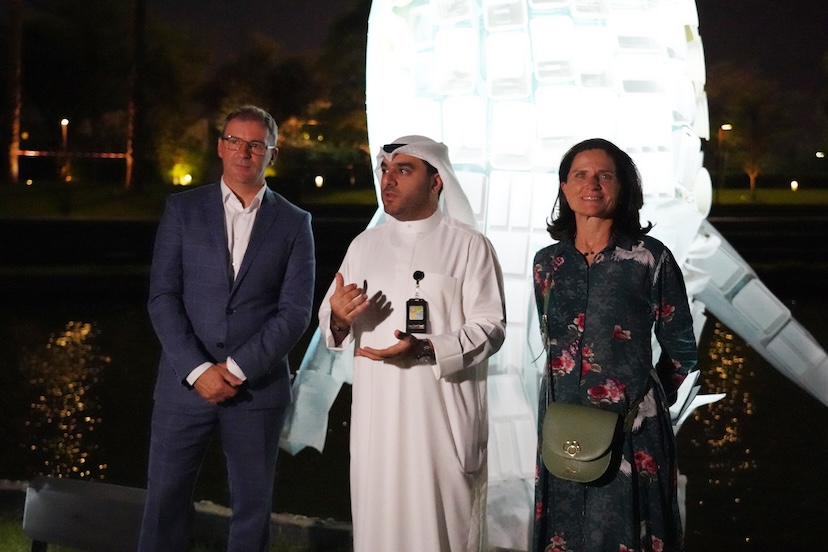
The larger-than-life sustainability event stood as a celebration of our beautiful planet and a heartfelt call to action for everyone to participate. Highlighting how today’s pace of life has affected our world, the 4-day event showcased the human impact on the environment in an inspiring way, by pledging to make a change at the dedicated Pledge Wall. Also in collaboration with the EPA, Kuwait Environment Public Authority, IKEA has also announced a series of workshops and an ongoing collaboration towards safeguarding Kuwait’s environment.
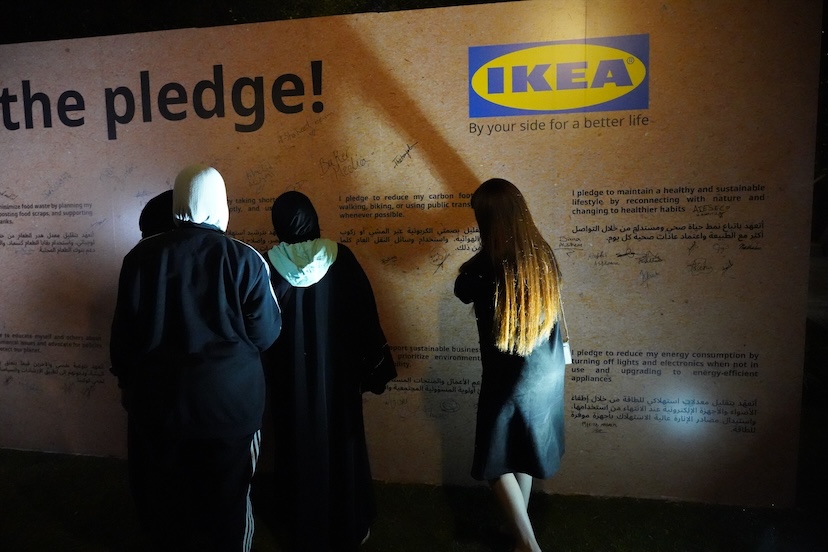
The event itself marked a poignant moment for Marino Maganto, CEO of IKEA Kuwait, Jordan, and Morocco, as not only did April “mark Earth Month with our first Sustainability event but also celebrated our 40 years in Kuwait; a journey marked by memorable moments, lots of inspiration, and love from all the people of Kuwait, and immense dedication from all our coworkers. Throughout these years, sustainability remained a core part of our commitment towards Kuwait,” he added.
It was an introspective walk visiting each exhibit to say the least. Event invitees as well as public passers-by were intrigued and shocked by the facts each display presented in a lush, beautifully maintained Shaheed Park that is commonly frequented by people living in Kuwait looking for uninterrupted green spaces.
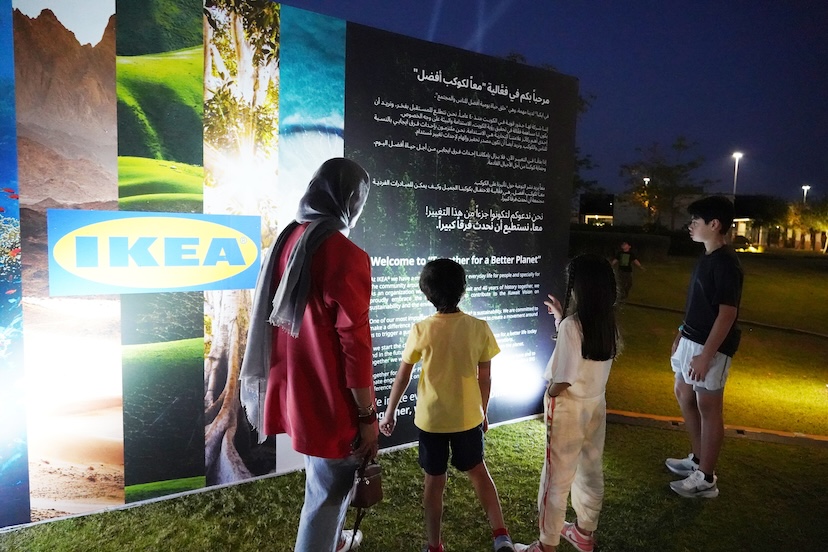
Commenting on the theme of the event, Maganto said, “While IKEA’s strong sustainability strategy has been in effect for years, we revisit it every single year to reassess how we can do better for our world. We are people and planet positive and we do this by ensuring that our three key sustainability pillars are applied to every aspect of our organization. We not only want to do good for our physical environment, but we also want to influence as many people as possible and we have a goal to help 1 billion people reach a more healthy and sustainable life. We do this by examining the tough questions and facts that involve mass consumption and production, all of which is tackled in art installations on display.”
Maganto feels strongly about living a healthier life, as changing our eating habits. For instance, one of the fastest and easiest changes one can make towards is reducing meat consumption to further reduce CO2 emissions caused by this dramatic increase in consumption. He said, “By changing our eating habits, we create the space for better air quality by making sure that we have enough trees in the world that absorb our CO2 emissions. This is why we continue to introduce more plant-based food in our IKEA restaurants. By 2030, 80% of our range of restaurant offerings will be plant based.”
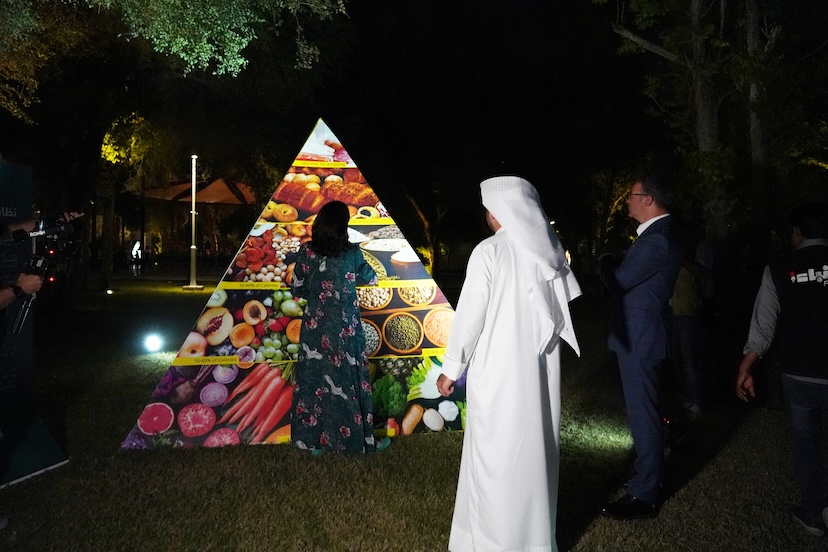
A visit to the food pyramid installation exemplified the profound impact of nutrition on longevity, suggesting that a healthy diet could potentially extend life by a decade. Food not only influences our physical well-being but also deeply affects our energy levels and motivation, making it an indispensable component of healthy living. IKEA, in alignment with its vision to promote both individual and planetary health, offers a range of nutritious and sustainable food choices. From plant-based options like plant balls and vegetable hotdogs to responsibly sourced salmon filets and non-dairy soft ice cream, IKEA prioritizes wholesome fare that nourishes both body and planet. IKEA also aims to transition all food packaging to renewable or recycled materials by 2030, further solidifying its dedication to fostering a healthier, more environmentally conscious world.
As we approached the T-shirt installation, it served as a striking reminder of the significant impact our material consumption has on water usage. The illuminated facts disclosed that crafting a single T-shirt requires a staggering 3,000 liters of water, while a pair of jeans demands 6,000 liters—amounting to 9,000 liters in total, enough to sustain one person for nine years. IKEA’s dedication to combating such excessive water usage is evident through initiatives like the Better Cotton Initiative, in partnership with WWF, ensuring cotton is either recycled or grown sustainably with reduced water and pesticide usage.
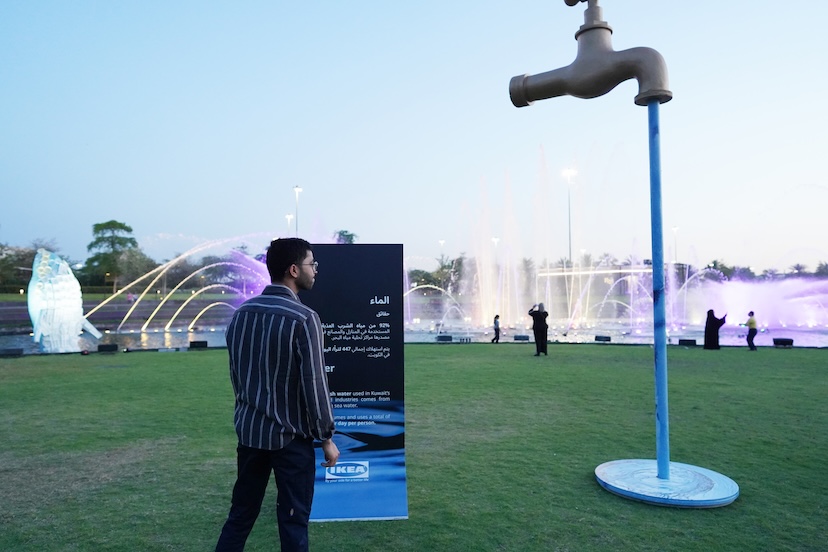
Additionally, IKEA prioritizes Lyocell, a wood pulp-derived fiber, in its bed linen, pillows, and duvets for its strength, silky-smooth texture, and excellent moisture absorption. Products such as the BUSENKEL duvet cover blend cotton with Lyocell, while options like the JUNIMAGNOLIA bed linen highlight pure cotton’s breathability and softness, enhancing comfort with each wash.
Also putting water, front and center, is the large faucet installation, shockingly displaying how 92% of fresh water used in Kuwait’s homes and industries comes from desalinating sea water and how Kuwait consumes and uses a total of 447 liters per day per person. We can bring these numbers down today in Kuwait by committing to water saving taps and showerheads from IKEA, which integrate air to create a good flow with less water. The BROGRUND tap enables you to consume less water as well as less energy. Combined with ABÄCKEN mist nozzle, it helps reduce your water consumption. Today, all of IKEA’s stores in Kuwait utilize water saving taps.
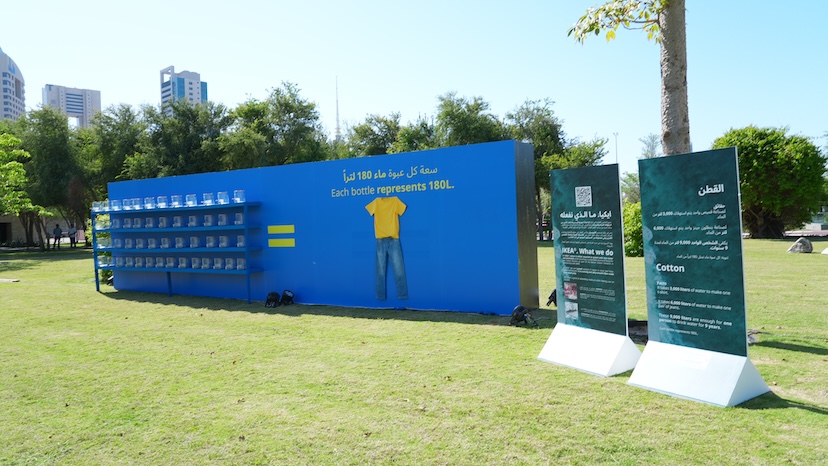
We continued our walk, stopping to read on one board that every day, we lose 41.04 million trees. Pausing at this display on wood usage, Maganto told us more about IKEA’s second, and perhaps biggest, pillar Circular and Climate Positive. Maganto stressed on the importance of ensuring that IKEA Kuwait is positively impactful locally and not just worldwide. It’s no surprise that IKEA is one of the biggest consumers of wood in the world, yet they work tirelessly to find alternative ways to keep our forests intact via dedicated replantation initiatives with the Forest Stewardship Council (FSC*), and utilizing recycled wood or other sustainable materials like PET plastic. Today more than 98% of the wood used for IKEA products is either recycled or FSC-certified.
From sustainable wood, to plastic usage, we learned more about IKEA’s approach to circularity when it comes to plastic usage and reducing waste at the Whale Sculpture, positioned by the Shaheed park fountains. Every year, 2 million tons of solid waste are generated out of Kuwait alone, eqivalent to the weight of 134,000 blue whales, the largest mammal on the planet! While we let that fact sink in, Maganto reiterated that IKEA Kuwait is committed to reducing waste, and he said that this “starts with the displays that we have in showrooms. All of our display items go to the As-Is section to give these products a second life, offering customers huge discounts which can go up to 70% at times. We are also deeply committed to recycling, launching a new service, where you can actually call us to pick up ANY furniture you don’t want. Let’s say you visit us to purchase a sofa, we are more than happy to take the old one. We will break it down into the different components and we will actually recycle it!”
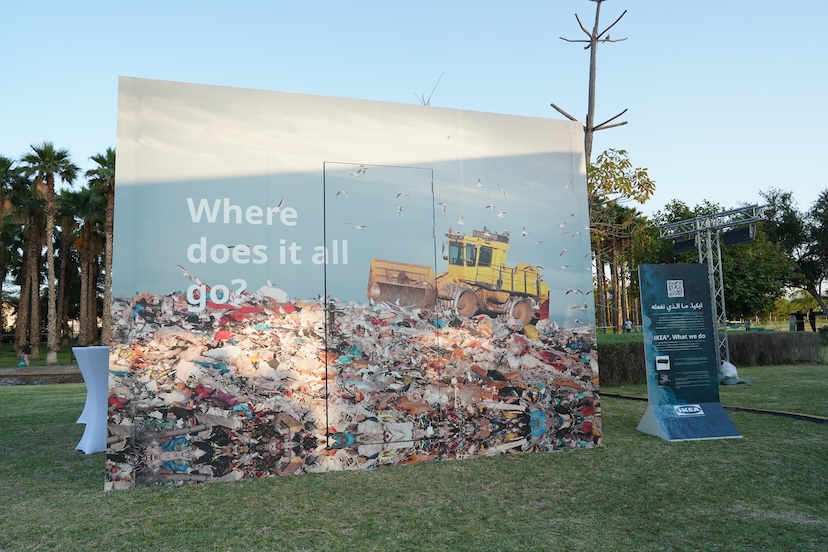
IKEA Kuwait has recycled 1,700 tons of cardboard in 2023 which equals to the weight of almost 3,378 camels! They also recycle cardboard, paper, wood, plastic, fabric, sponge, glass and metal from their operations and the used oil from the kitchens. At home, you can start recycling right away by separating your plastics, metals and paper products using IKEA containers, and the best part is that you can bring your recyclables to any of IKEA’s stores in Kuwait and they will happily take these off your hands.
We lastly visited the Plastics installation, a fully enclosed space covered in plastic bottles, and watched a presentation about how around 8 million metric tons of plastic bottles enter the oceans every year. This is like dumping one full garbage truck of plastic into the ocean every minute. By the end of it, we felt suffocated just learning about the alarming level of pollution taking over our oceans. By 2030, IKEA will only use 100% renewable or recycled materials in any of their plastic products offerings, with currently 60% of the materials used being renewable and 10% recycled.
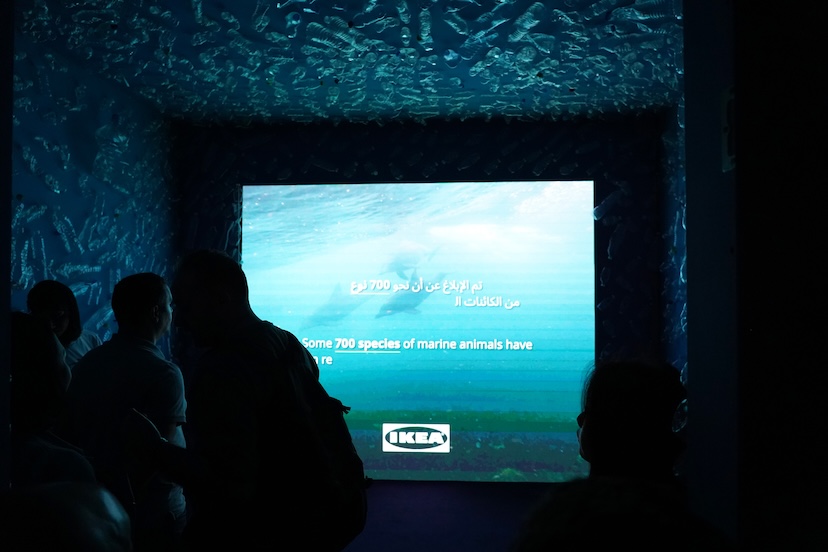
Despite the somber realities presented, Maganto remains hopeful about the future. He believes that Kuwait’s youth will usher in the awareness needed to bring about real change in how we interact with the world around us, and he also looks to his teams to bring about change in the IKEA ecosystem. “Our third pillar at IKEA is Fair and Equal, “ he says. “This is all about how we interact with our societies, and the people around us, our coworkers, our customers and even our suppliers. Sustainabiliity extends to our code of conduct, ensuring that we treat people in a fair way, in order to live better and do better by their environement as well.”
Looking towards the next 40 years in Kuwait, IKEA aims to lead the way by announcing the LEED cerfiticaton for IKEA The Warehouse, the world’s most recognized system for rating green buildings and spaces. IKEA The Warehouse provides a sustainablity success story for others to follow, as it is energy efficient, cost saving and utilizes smart, sustainable materials for insulation/cooling systems. Today, it is the first LEED compliant store in Kuwait and the region.
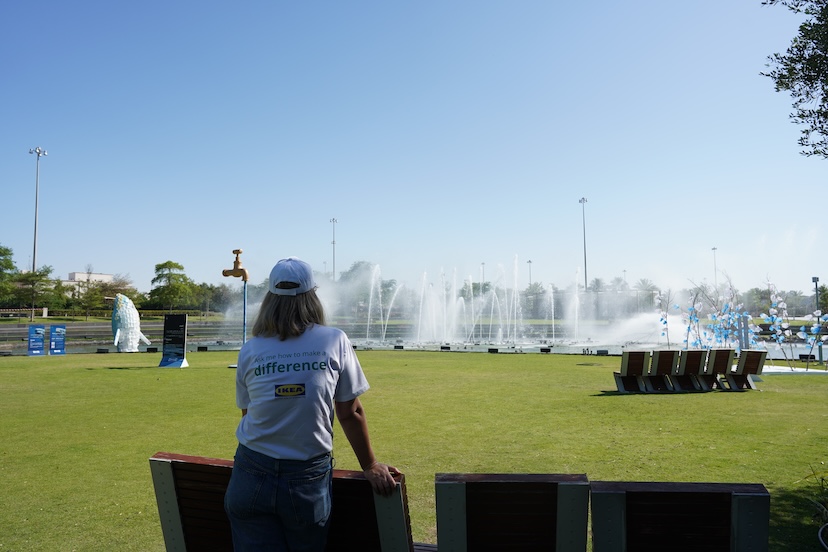
Lastly, as we approached the Sustainability Pledge Wall to sign our names (we pledged to plant more trees!) Maganto tells us how we can continue our sustainability pledges at home. He deeply believes that sustainability as a concept doesn’t only belong in a corporate landscape and that “We can all make small changes every day, like cooking a little bit less food to reduce food waste, switching off all the lights when we walk out of a room, making sure that we only put the AC on a certain temperature so that we don’t waste energy and not leave doors open when the AC is running, to even buying the clothes that we’re actually going to use and not simply impulse-buy. Mindfullness in everything we do will help us live more sustainably in the long run.”
To reinforce IKEA’s pledge towards a more sustainable operation in Kuwait, all of the materials utilized in the installations, including the Pledge Wall, have been allocated for reuse or recycling after the event.
For more information, please visit: www.IKEA.com.kw

